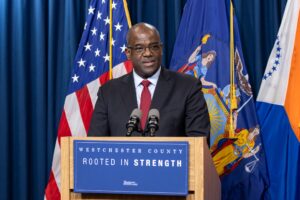
As the election came to a close just a few weeks ago, it’s important to note one of the most influential campaigns of President-elect, Joe Biden’s, career as a senator––The Violence Against Women Act, or VAWA for short. Biden was the author of this act, which revolutionized the way women experiencing violence are treated in the judicial system. The act seemed to have the most impact among women experiencing homelessness or poverty.
VAWA specifically addressed and protected, victims of domestic violence, sexual assault, teen dating violence, and stalking. The act was passed through congress with bipartisan support in 1994 and was the first U.S. federal legislation to actually acknowledge sexual assault as crimes. The Act also established the Office on Violence Against Women within the Department of Justice which was imperative, as 81% of all women experience some form of sexual harassment and/or assault in their lifetime, according to this national study.
The act ultimately targeted low-income and homeless women the most, as this demographic experiences abuse at disproportional rates. The U.S. Department of Justice notes that 38% of domestic violence victims become homeless at some point in their lives. Reports of domestic violence are also five times greater in women with an income below $10,000; this could be due to 21-60% of victims of domestic violence losing their jobs because of reasons stemming from the abuse, according to the National Coalition Against Domestic Violence.
Before VAWA, police were encouraged to ignore domestic violence cases, as they were seen as family matters. Judges were also a part of the problem as they had a tradition of victim blaming in court, claiming harassment was the woman’s fault. Sex offenders would even say their victim encouraged the assault and some even went as far as to say they enjoyed it. Domestic abusers could also cross state lines to avoid prosecution for beating their spouses, since law enforcement was not required to listen to prosecution orders filed in other states.
VAWA greatly impacted low-income women since it provided $1.6 billion toward investigation and prosecution of violent crimes against women, imposed automatic and mandatory restitution on those convicted, and allowed civil redress in cases prosecutors chose to leave un-prosecuted. This helped women who would otherwise have no means of seeking help or justice.
Most women in homeless shelters have experienced abuse, and according to Women’s Lunch Place, a women’s day shelter in Boston, 57% of their guests have experienced domestic violence. These statistics are consistent with other shelters nationwide and is why VAWA was such an important piece of legislation among this demographic.
Since VAWA was passed, the rate of intimate partner violence declined 67% in less than 20 years, and the rate of intimate partner homicides of females decreased 35% in less than 15 years, as stated in the Obama White House Archived files. Victims are no longer forced to bear the expenses of their own rape exams, or for service of a protection order. The act also ensures that police respond to all crisis calls, and that judges understand the realities of domestic and sexual violence; allowing women to finally be heard.
VAWA enormously reformed state legislation as well. All states have now: reformed laws that previously treated date/spousal rape as a lesser crime than stranger rape, authorized warrantless arrests in domestic violence where there’s probable cause, passed laws prohibiting polygraphs of rape victims, provided criminal sanctions for violating civil protection orders, and made stalking a crime.
Regardless of political views, it’s safe to say Joe Biden has done a great thing for women, by writing and cosponsoring this act. It has revolutionized the way women are treated, and has changed a system that didn’t value victims and their abuse, to a system that will finally listen.
Bridget Chiaravalleis is from Sleepy Hollow and is currently a senior at Boston University, majoring in public relations, while competing for the track and field team.





